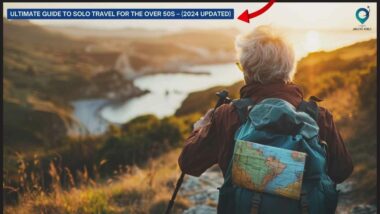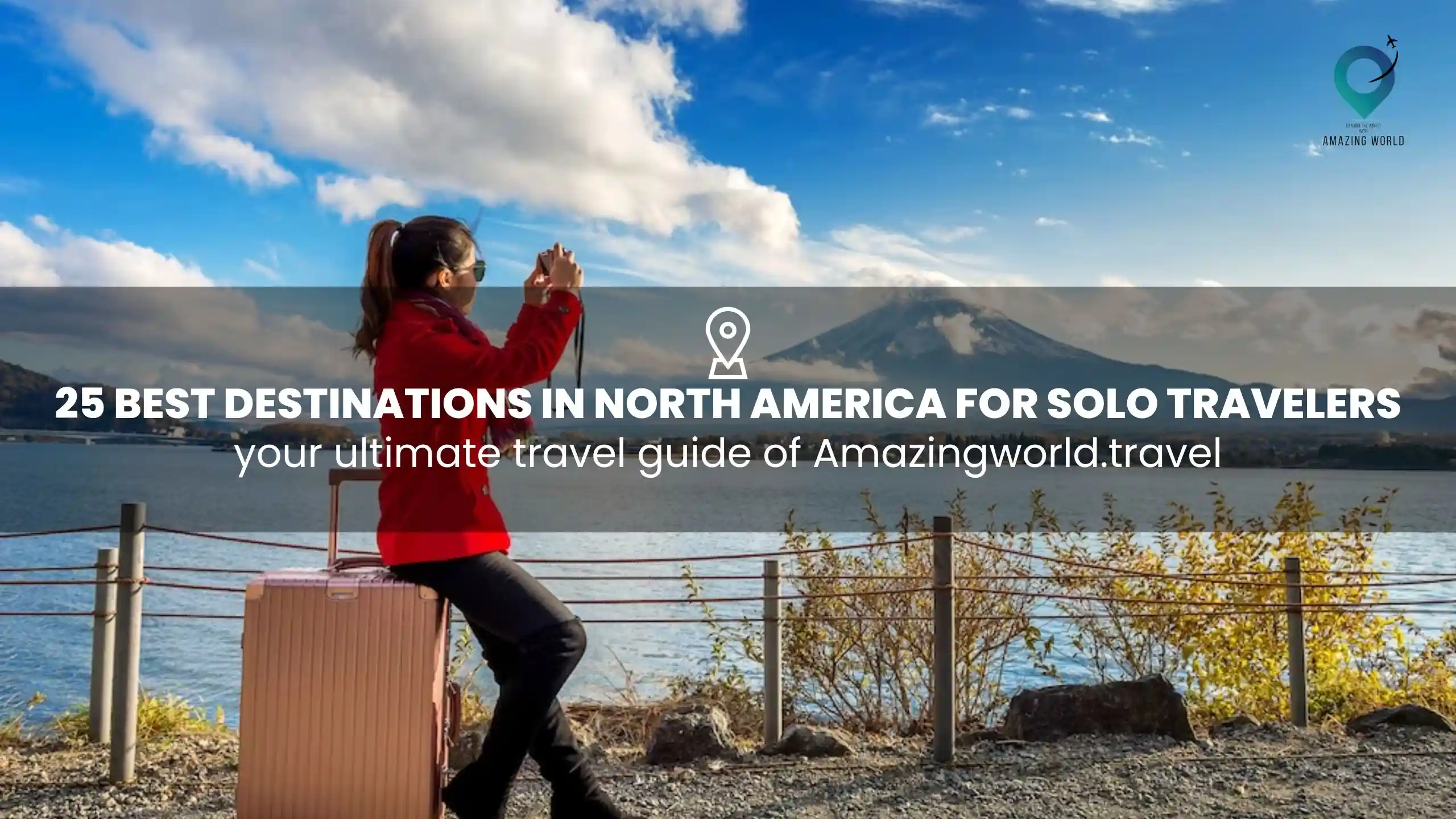10 Hotel Safety Tips for Solo Women Traveling Solo- Amazingworld

Are you a woman traveling alone and ready for an exciting adventure? Exploring new places on your own is thrilling, but making sure you stay safe is super important. As you get set for your solo trip, we’ve put together a special guide just for you – 10 Hotel Safety Tips designed to make your journey worry-free.
From picking the right place to stay to know how to travel alone safely, this guide will help you have a great time while staying safe. Let’s dive into the secrets of a secure and awesome solo travel experience in amazing places around the world!
“If you are looking for the best hotel and flight deals for your next vacation, then we recommend booking your bundled flight and hotel through hotwire.com.“
1. Research Your Destination
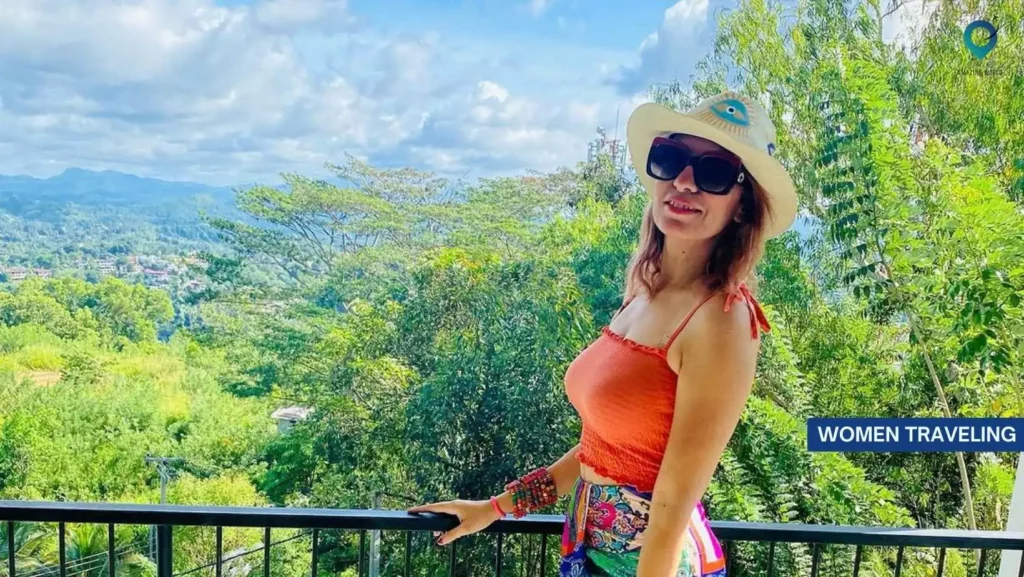
Before you go on your trip, it’s important to pick a place that’s safe and good for solo women travelers. Look for spots where other women have had a good time. Also, learn about the local customs and culture to be respectful and know what to expect. This way, you’ll have a smoother and safer adventure!
2. Pre-Booking Precautions
When planning your solo adventure, taking precautions before you book your accommodation is a crucial step to ensure a safe and enjoyable trip. Let’s delve into the detailed aspects of pre-booking precautions, focusing on selecting safe neighborhoods and the importance of reading reviews and ratings.
- Selecting Safe Neighborhoods
Choosing a safe neighborhood sets the foundation for a secure and comfortable stay during your solo journey. Consider the following factors when deciding on the location of your accommodation:
- Crime Rates: Research the crime rates in different neighborhoods. Look for areas with lower crime rates, especially concerning crimes that may affect tourists.
- Proximity to Public Spaces: Opt for accommodations in neighborhoods that are well-connected to public spaces, making it easier for you to explore while ensuring you have easy access to help if needed.
- Local Recommendations: Seek advice from fellow travelers, online forums, or travel communities to get insights into neighborhoods that have been positively experienced by solo women travelers.
- Accessibility: Ensure that the neighborhood is easily accessible, especially if you plan to return to your accommodation late in the evening. Well-lit streets and easily available transportation contribute to a safer environment.
- Reading Reviews and Ratings
Once you’ve narrowed down your options to specific neighborhoods, the next step is to dive into reviews and ratings of potential accommodations. Here’s why this step is crucial:
- Guest Experiences: Reviews from fellow travelers provide valuable insights into their experiences. Pay attention to reviews specifically from solo female travelers to understand their perspectives.
- Safety Mention: Look for reviews that highlight safety measures or situations. Positive comments about well-lit areas, helpful staff, and secure surroundings are indicators of a safe accommodation.
- Online Platforms: Utilize reputable online platforms that aggregate reviews and ratings. Check multiple sources to ensure a comprehensive understanding of the accommodation’s safety.
- Consistency in Reviews: Consistent positive reviews regarding safety from various sources boost the reliability of your chosen accommodation.
By carefully considering these pre-booking precautions, you lay the groundwork for a secure stay, allowing you to focus on the wonders of your solo travel adventure.
3. Communicate Your Itinerary
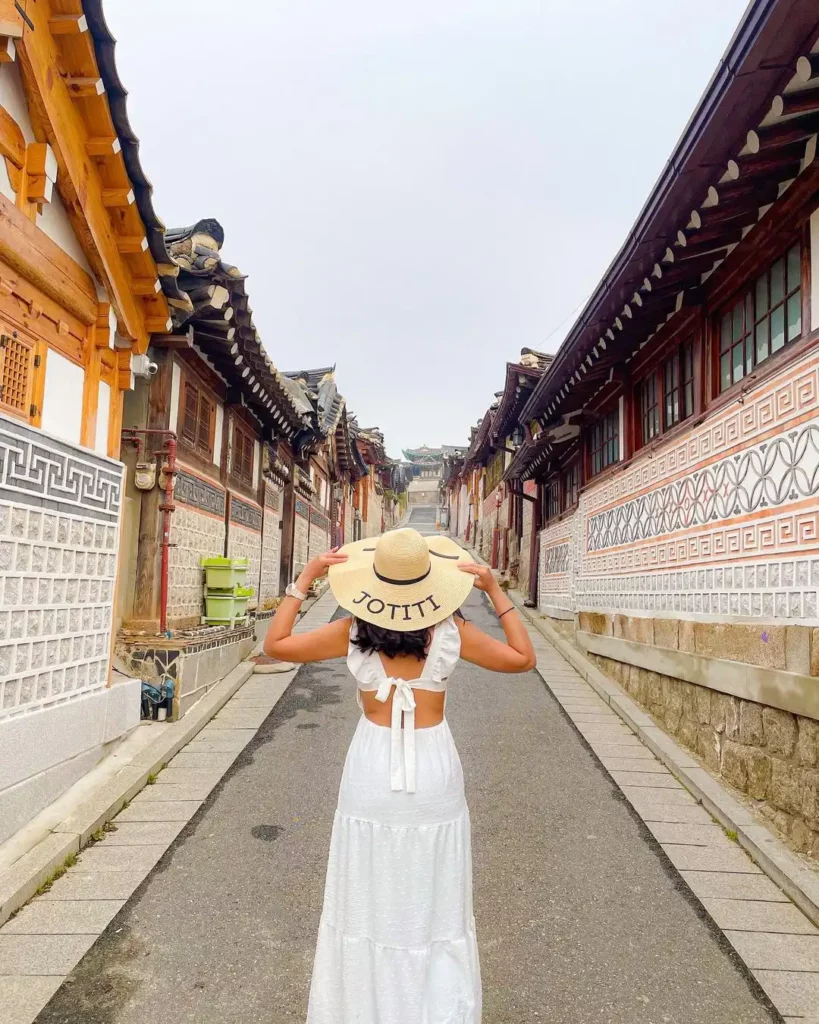

Before setting out on your solo journey, effectively communicating your itinerary is a key safety measure. This involves keeping trusted contacts in the loop and leveraging travel apps for real-time updates.
A. Informing Trusted Contacts
Sharing your travel plans with trusted contacts ensures that someone knows your whereabouts, providing an extra layer of security. Here’s how you can effectively communicate your itinerary:
- Share Detailed Plans: Provide your trusted contacts with a detailed itinerary, including your accommodation details, planned activities, and transportation arrangements.
- Emergency Contacts: Share important emergency contacts with your trusted contacts, such as local authorities, the nearest embassy, and your accommodation’s contact information.
- Regular Check-Ins: Establish a check-in routine with your trusted contacts. Whether it’s a daily message or a quick call, regular updates reassure your loved ones of your well-being.
- Alternative Plans: Communicate any changes or deviations from your original itinerary promptly. This ensures that your trusted contacts are aware of your updated plans.
B. Utilizing Travel Apps for Real-Time Updates
Modern technology offers valuable tools for real-time communication and updates during your travels. Here’s how you can make the most of travel apps:
- Share Location: Use location-sharing features on messaging apps or dedicated travel apps to allow your trusted contacts to track your real-time location.
- Check-In Apps: Explore travel apps that offer check-in features, allowing you to update your status and location easily. This can be particularly useful in crowded or unfamiliar places.
- Emergency SOS: Familiarize yourself with emergency features on travel apps, enabling you to quickly alert local authorities or contacts in case of an unforeseen situation.
- Navigation Apps: Opt for navigation apps that provide real-time traffic updates and alternative routes, helping you make informed decisions on the go.
By proactively informing trusted contacts and leveraging travel apps for real-time updates, you enhance your safety net while traveling solo.
3. Choose Accommodations Wisely
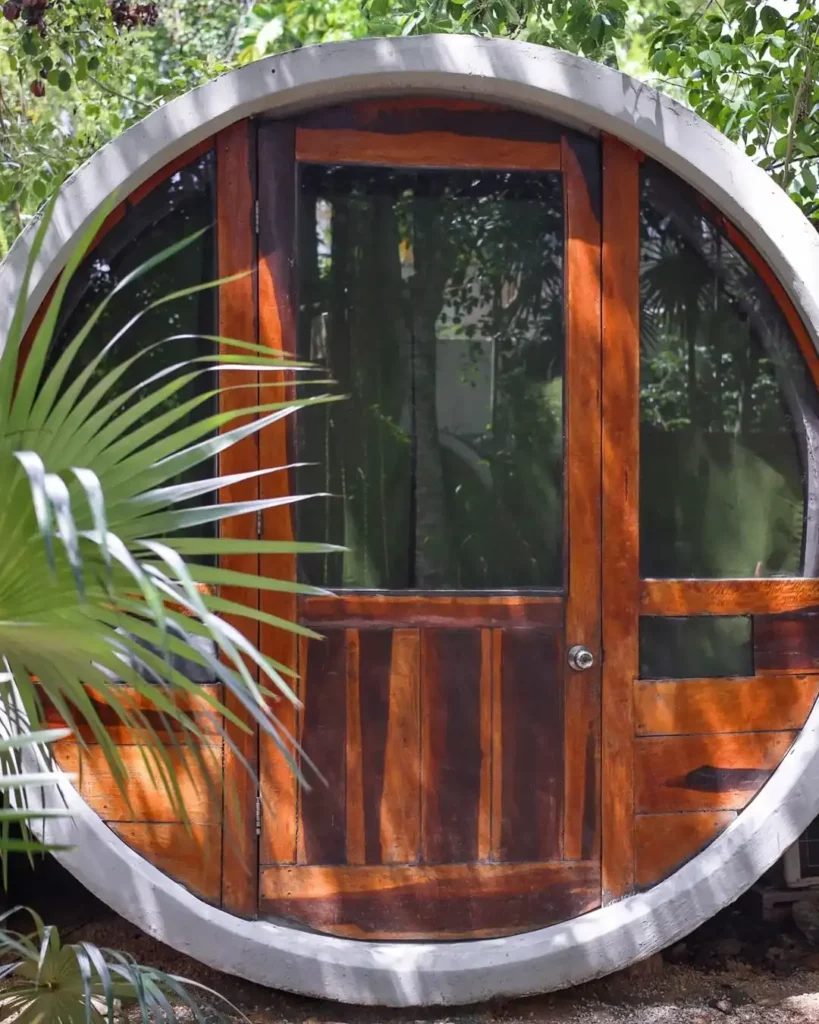

Selecting the right accommodation is pivotal for a safe and comfortable solo travel experience. Let’s explore the considerations for choosing accommodations wisely, including the safety features to look for and the importance of opting for reputable places.
A. Hotel Safety Features to Look for
When evaluating potential accommodations, paying attention to safety features is crucial to ensure a secure stay. Here are key safety features to consider:
- Secure Entrances and Exits:
- Look for hotels with controlled access points and well-monitored entrances and exits.
- Adequate lighting in these areas adds an extra layer of security, especially during late arrivals or departures.
- 24/7 Front Desk Service: Opt for accommodations with round-the-clock front desk service for immediate assistance in case of emergencies or concerns.
- Surveillance Cameras: The presence of surveillance cameras in common areas and hallways enhances overall safety and discourages unauthorized access.
- Room Security: Ensure that rooms are equipped with secure locks, deadbolts, and peepholes for added personal safety.
- Emergency Procedures: Familiarize yourself with the hotel’s emergency procedures and evacuation routes, providing confidence in case of unforeseen circumstances.
B. Opting for Reputable Accommodations
Choosing reputable accommodations is essential for a worry-free stay. Here’s why opting for well-regarded places is a smart move:
- Online Reviews and Ratings: Check online reviews and ratings from fellow travelers to gauge the reputation of the accommodation. Consistent positive feedback indicates reliability.
- Accreditation and Certifications: Look for hotels that have industry certifications or accreditations, signifying adherence to safety and quality standards.
- Recommendations from Trusted Sources: Seek recommendations from trusted sources, such as travel forums or friends who have had positive experiences in the same accommodations.
- Central Location: Opt for accommodations in central and well-traveled locations, providing easier access to transportation and assistance if needed.
- Communication with Staff: Engage with hotel staff before booking to assess their responsiveness and willingness to address any specific safety concerns.
When embarking on solo adventures, it’s important to prioritize safety features and choose reputable accommodations. By doing so, you create a secure and enjoyable environment for yourself during your stay.
4. Use Hidden Camera Detector Tools: Ensuring Your Privacy and Safety
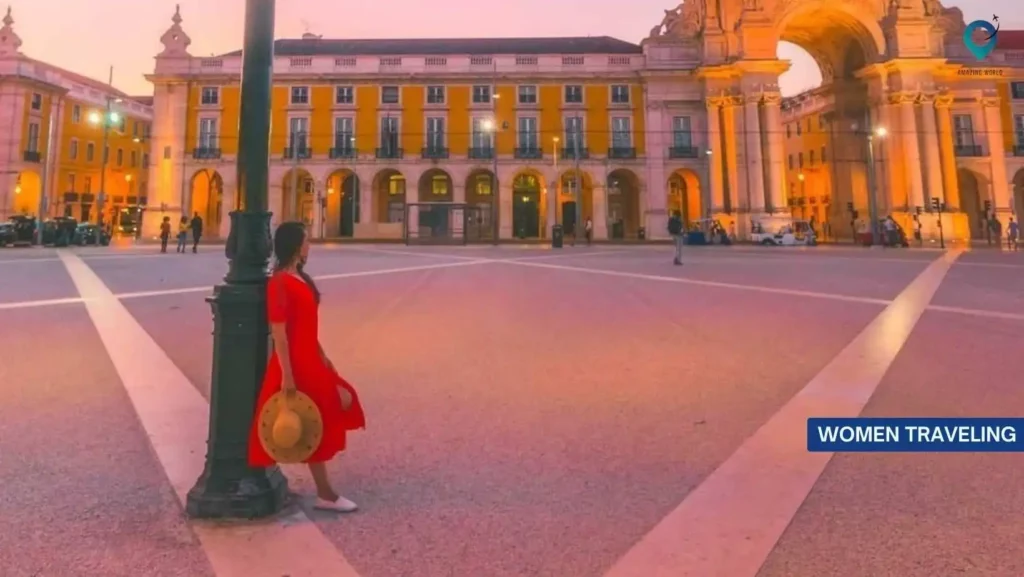
In the era of advanced technology, safeguarding your privacy is paramount, especially when staying in unfamiliar accommodations like vacation rentals, Airbnb, or hotels. Investing in safety devices such as the Navfalcon Hidden Camera Detector can be a game-changer in detecting and protecting against potential privacy breaches.
1. Identifying Hidden Cameras: Hidden cameras can be discreetly placed in various locations, infringing on your privacy without your knowledge. The Navfalcon Hidden Camera Detector utilizes advanced technology to identify and locate hidden cameras, ensuring that your personal space remains just that – personal.
2. Ideal for Vacation Rentals and Airbnb: When staying in vacation rentals or Airbnb properties, where privacy concerns may arise, having a hidden camera detector is particularly crucial. These devices offer peace of mind, allowing you to enjoy your temporary home without worrying about unauthorized surveillance.
3. Hotel Safety Assurance: Even in reputable hotels, the possibility of hidden cameras cannot be entirely ruled out. The Navfalcon Hidden Camera Detector serves as an additional layer of security, enabling you to scan your surroundings and confirm the absence of concealed cameras.
4. Portable and User-Friendly: One of the notable features of the Navfalcon Hidden Camera Detector is its portability and user-friendly design. Compact and easy to use, it can be carried in your travel essentials, ensuring that you can perform quick scans whenever you check into a new accommodation.
5. Peace of Mind for Solo Travelers: For solo travelers, the assurance of privacy is paramount. With the Navfalcon Hidden Camera Detector, solo female travelers can enhance their sense of security, making it an invaluable companion during their journeys.
6. How It Works: Simply turn on the detector and slowly sweep it around the room. The device will alert you if it detects any suspicious signals emitted by hidden cameras. This straightforward process empowers travelers to take control of their personal space.
Investing in a hidden camera detector like the Navfalcon model adds an extra layer of security and peace of mind to your travels. As technology evolves, staying proactive in safeguarding your privacy becomes essential, and tools like these contribute to creating a safer and more secure environment during your adventures.
5. Arrival and Check-In Tips
Arriving at your destination and checking into your accommodation marks the beginning of your solo journey. To make this transition smooth and secure, consider the following arrival and check-in tips:
1. Arrive During Daylight: Aim to arrive at your destination during daylight hours. This provides better visibility and a more secure environment for your initial exploration of the area.
2. Be Mindful During Check-In: When checking in, be mindful of your surroundings. Ensure that personal information is shared discreetly and only in designated areas to maintain privacy.
3. Stay Aware in the Lobby: While in the hotel lobby, stay alert to your belongings. Keep an eye on your luggage, passport, and other essential items during the check-in process.
4. Verify Staff Credentials: Confirm the credentials of hotel staff, especially if approached outside the official check-in counter. Legitimate staff members should be identifiable by proper uniforms or badges.
5. Request a Room Away from High Traffic Areas: If possible, request a room away from high-traffic areas such as elevators and stairwells. This can reduce noise and enhance your overall sense of security.
6. Familiarize Yourself with Emergency Exits: Take a moment to familiarize yourself with the location of emergency exits. Knowing the evacuation routes ensures you’re prepared in case of unforeseen situations.
7. Keep Valuables Secure: During check-in, keep your valuables secure. Consider using a money belt or a discreet pouch to store important items like passports, credit cards, and cash.
8. Use Discreet Communication: If discussing sensitive matters or providing personal information, use discreet communication methods. Consider writing down information rather than saying it out loud.
9. Trust Your Instincts: Trust your instincts when interacting with hotel staff or fellow guests. If something feels off or raises concerns, don’t hesitate to address it with the hotel management.
10. Store Important Contacts: Store important contacts, including the hotel’s front desk and local emergency services, in your phone. Having quick access to these numbers enhances your preparedness.
By following these arrival and check-in tips, you set the stage for a secure and pleasant stay.
6. Secure Your Room: Creating a Safe Haven
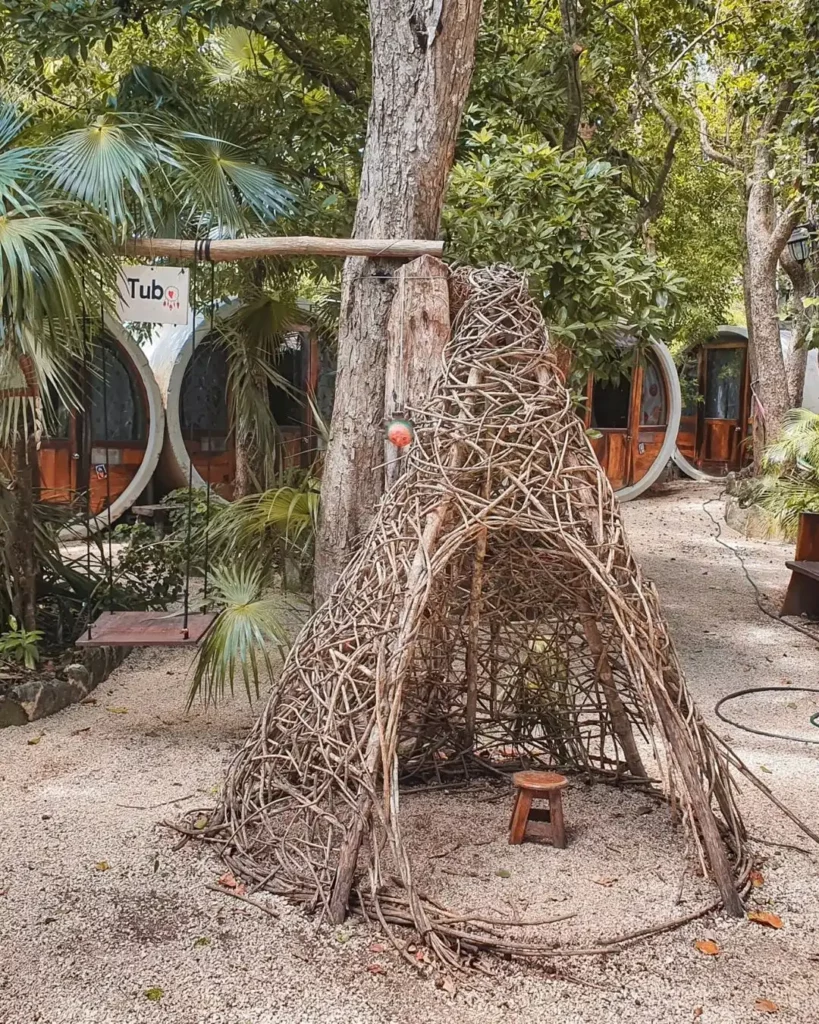
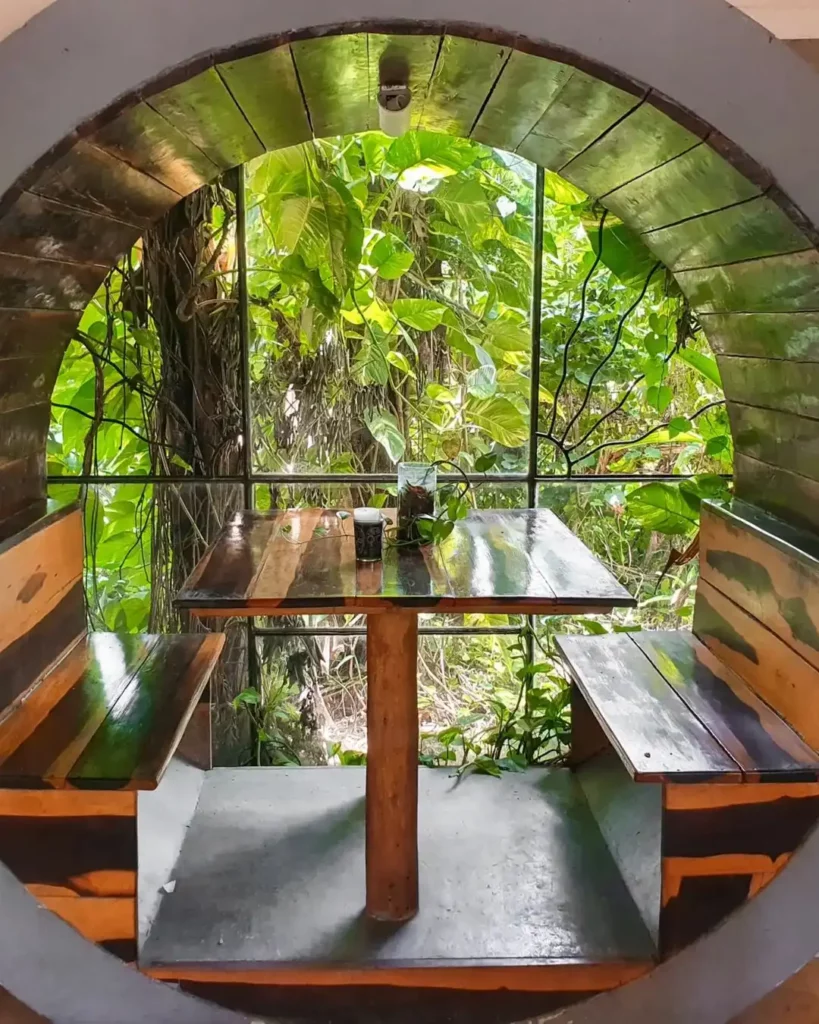
Ensuring the security of your hotel room is paramount for a worry-free stay. Here are essential tips to help you secure your room:
Lock Doors and Windows: Upon entering your room, immediately lock all doors and windows. This basic step is fundamental for your safety and peace of mind.
Utilize Hotel Room Safe: Most hotels provide a room safe. Use it to store valuables like passports, extra cash, and important documents, adding an extra layer of security.
Be Mindful of Room Keys: Keep your room key secure and avoid displaying it openly. If it’s a physical key, store it separately from other belongings.
Check Peepholes and Locks: Inspect the peephole and locks on your door. Ensure they are functioning properly, and report any issues to hotel staff promptly.
Use Door Stoppers: Consider using a doorstop or wedge to enhance the security of your room. It provides an additional barrier and peace of mind, especially during the night.
Keep Curtains Closed at Night: Maintain privacy by keeping curtains closed, especially at night. This simple step prevents outsiders from peering into your room.
Report Suspicious Activity: If you notice any suspicious activity or unauthorized persons in your vicinity, promptly report it to hotel staff. Your vigilance contributes to overall safety.
7. Stay Vigilant in Public Areas: Navigating Shared Spaces with Confidence
As you venture into public areas of your accommodation, staying vigilant is crucial for personal safety. Here’s how to navigate shared spaces with confidence:
Keep Belongings Secure: In public areas like lobbies and common spaces, keep your belongings secure. Use anti-theft bags or keep an eye on your purse and electronic devices.
Be Aware of Your Surroundings: Stay aware of your surroundings. Avoid distractions such as excessive use of your phone when walking through busy areas.
Trust Your Intuition: Trust your intuition if you feel uncomfortable or uneasy in a public space. Move to well-lit and populated areas if needed.
Avoid Revealing Personal Information: Be cautious about discussing personal information in public areas. Save such conversations for more private settings to protect your privacy.
Use Designated Pathways: Stick to designated pathways and avoid taking shortcuts, especially in unfamiliar or dimly lit areas of the hotel. Safety often lies in well-traveled routes.
Stay Informed of Emergency Exits: Familiarize yourself with the location of emergency exits in public areas. Knowing escape routes adds an extra layer of preparedness.
8. Transportation Safety: Safely Navigating Your Journeys
Transportation safety is a crucial aspect of solo travel. Consider the following tips to ensure safe navigation during your journeys:
Choose Reliable Transportation: Opt for reputable transportation services, whether it’s a taxi, rideshare, or public transit. Choose well-lit and official pickup points.
Share Your Itinerary: Inform a trusted contact of your transportation plans, including your expected arrival time. This ensures someone knows your whereabouts.
Verify Transportation Details: Confirm details such as the driver’s name, vehicle information, and license plate before entering any vehicle. Ensure they match the information provided by the transportation service.
Stay Alert During Transit: Stay alert and attentive during your journey. Avoid distractions like excessive phone use and be aware of your surroundings.
Avoid Traveling Alone Late at Night: Whenever possible, avoid traveling alone late at night. Opt for transportation services during daylight hours for added safety.
Trust Your Gut Feeling: Trust your instincts when it comes to the safety of your transportation. If something feels off, consider opting for an alternative mode or canceling the ride.
9. Emergency Preparedness: Ready for the Unexpected
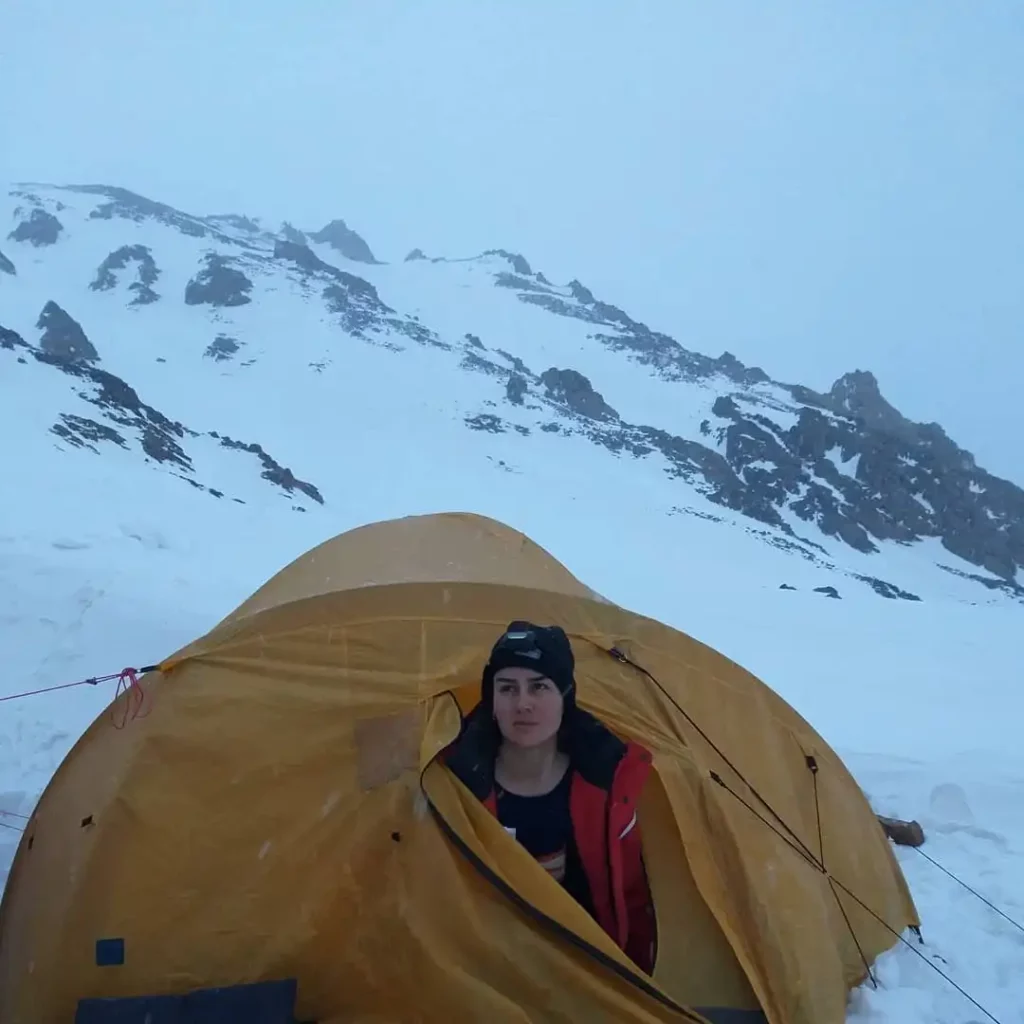

Being prepared for emergencies is a crucial aspect of solo travel. Here’s a guide to emergency preparedness, ensuring you’re ready for the unexpected:
Store Important Contacts: Save emergency contacts, including local authorities, the nearest embassy or consulate, and your accommodation’s front desk, in your phone. Easy access to these numbers is vital during emergencies.
Carry a First Aid Kit: Pack a basic first aid kit with essentials such as bandages, pain relievers, and any personal medications you may need. Having these supplies can be invaluable in minor emergencies.
Familiarize Yourself with Local Emergency Services: Before arriving at your destination, familiarize yourself with the local emergency services number. In many countries, it’s not always 911, so knowing the correct number is crucial.
Know the Location of Emergency Exits: Whether in your accommodation or public spaces, always know the location of emergency exits. Being aware of escape routes can be crucial in case of a fire or other emergencies.
Keep a Copy of Important Documents: Make photocopies or digital copies of important documents like your passport, identification, and travel insurance. Store them separately from the originals to have backup documentation in case of loss.
Share Your Itinerary with Trusted Contacts: In case of unforeseen circumstances, share your travel itinerary with trusted contacts. This information aids authorities in locating you quickly if needed.
10. Keep Valuables Secure: Safeguarding Your Essentials
Keeping your valuables secure is essential for a worry-free journey. Here’s how to ensure your essentials stay safe:
Use Anti-Theft Bags: Invest in anti-theft bags with features like lockable zippers and slash-resistant straps. These specialized bags deter pickpockets and thieves.
Utilize In-Room Safes: Take advantage of in-room safes provided by accommodations. Store passports, extra cash, and valuable items securely while you’re away.
Avoid Displaying Valuables: While in public areas, avoid displaying valuable items like expensive jewelry or large amounts of cash. Keeping a low profile reduces the risk of attracting unwanted attention.
Consider a Money Belt: For added security, consider using a money belt worn under your clothes. This discreet accessory is an excellent way to keep important items close to your body.
Stay Mindful in Crowded Spaces: In crowded places like markets or tourist attractions, stay vigilant. Thieves may take advantage of busy environments, so keep a close eye on your belongings.
Digital Security: Be cautious with digital devices. Avoid leaving them unattended, use secure passwords, and enable tracking features in case of loss or theft.
How much did you like Our detailed 10 Hotel Safety Tips for Women Traveling Solo- Amazingworld? Review Also, please share these Blogs with your friends on social media.
Related Article –
- Road Trips Ideas | 12 Tips to Prepare Your Car for a Long Road Trip?
- 150 Best Places to Visit in the United States In 2023
- Road Trip With Kids
- How to Stay Awake While Driving Long Distances
- Audiobooks to Listen to On Your Road Trip
- How to Create an Epic Itinerary Road Trip
- Best Rental Cars For Travel Adventures

Meet David Hoper, a passionate travel Blog writer with 7+ years of experience in travel content. Through his exemplary storytelling and engaging narratives, he shares his experiences and brings destinations to life. With a keen eye for detail and a love for exploration, he has cultivated a diverse portfolio of travel blogs that inspire and inform readers worldwide.





